Filter by
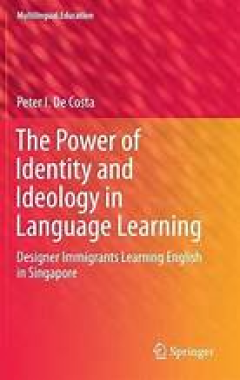
The Power of Identity and Ideology in Language Learning
This critical ethnographic school-based case study offers insights on the interaction between ideology and the identity development of individual English language learners in Singapore. Illustrated by case studies of the language learning experiences of five Asian immigrant students in an English-medium school in Singapore, the author examines how the immigrant students negotiated a standard En…
- Edition
- 1
- ISBN/ISSN
- 978-3-319-30211-9
- Collation
- XVII, 173, 1 b/w illustrations
- Series Title
- Multilingual Education
- Call Number
- -
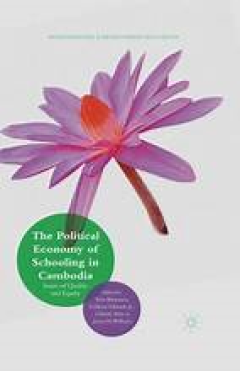
The Political Economy of Schooling in Cambodia
In the most in-depth look at education in Cambodia to date, scholars long engaged in research on Cambodia provide historical context and unpack key issues of high relevance to Cambodia and other developing countries as they expand and modernize their education systems and grapple with challenges to providing a quality and equitable education.
- Edition
- 1
- ISBN/ISSN
- 978-1-137-45600-7
- Collation
- XII, 245
- Series Title
- International and Development Education
- Call Number
- -
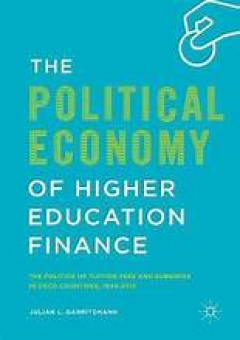
The Political Economy of Higher Education Finance
This book analyzes the political economy of higher education finance across a range of OECD countries, exploring why some students pay extortionate tuition fees whilst for others their education is free. What are the redistributional consequences of these different tuition-subsidy systems? Analysing the variety of existing systems, Garritzmann shows that across the advanced democracies “Four …
- Edition
- 1
- ISBN/ISSN
- 978-3-319-29913-6
- Collation
- XVI, 319, 37 illustrations in colour
- Series Title
- -
- Call Number
- -
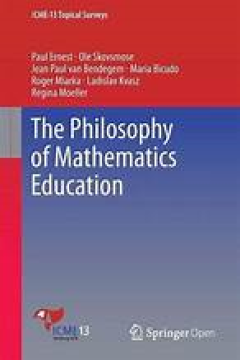
The Philosophy of Mathematics Education
This survey provides a brief and selective overview of research in the philosophy of mathematics education. It asks what makes up the philosophy of mathematics education, what it means, what questions it asks and answers, and what is its overall importance and use? It provides overviews of critical mathematics education, and the most relevant modern movements in the philosophy of mathematics. …
- Edition
- -
- ISBN/ISSN
- 978-3-319-40569-8
- Collation
- VII, 26
- Series Title
- ICME-13 Topical Surveys
- Call Number
- -

Information Literacy: Moving Toward Sustainability: Third European Conference…
This book constitutes the refereed proceedings of the Third European Conference on Information Literacy, ECIL 2015, held in Tallinn, Estonia, in October 2015. The 61 revised full papers presented were carefully reviewed and selected from 226 submissions. The papers are organized in topical sections on information literacy, environment and sustainability; workplace information literacy and kn…
- Edition
- -
- ISBN/ISSN
- 978-3-319-28196-4
- Collation
- XX, 618
- Series Title
- -
- Call Number
- 004 INF

Informatics in Schools. Curricula, Competences, and Competitions 8th Interna…
This book constitutes the refereed proceedings of the 8th International Conference on Informatics in Schools: Situation, Evolution, and Perspectives, ISSEP 2015, held in Ljubljana, Slovenia, in September/October 2015. The 14 full papers presented together with 3 invited talks were carefully reviewed and selected from 36 submissions. The focus of the conference was on following topics: sustainab…
- Edition
- -
- ISBN/ISSN
- 978-3-319-25395-4
- Collation
- XVI, 183
- Series Title
- -
- Call Number
- 004 INF
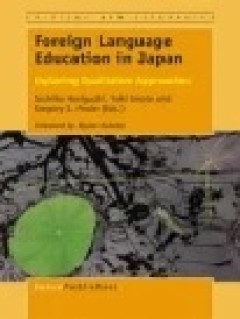
Foreign Language Education in Japan
Language education is a highly contested arena within any nation and one that arouses an array of sentiments and identity conflicts. What languages, or what varieties of a language, are to be taught and learned, and how? By whom, for whom, for what purposes and in what contexts? Such questions concern not only policy makers but also teachers, parents, students, as well as businesspeople, politi…
- Edition
- -
- ISBN/ISSN
- 978-94-6300-325-4
- Collation
- XII, 192 hlm.
- Series Title
- -
- Call Number
- -
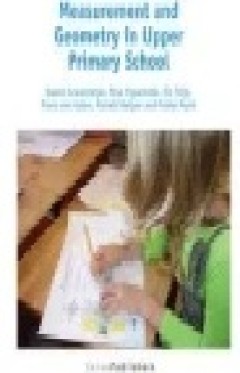
Measurement and Geometry in Upper Primary School
"This book is the fourth – and final – publication in the TAL project series. This TAL project was initiated by the Dutch Ministry of Education, Culture and Science, with the aim to improve the quality of mathematics education by providing a perspective on didactic goals and learning-teaching trajectories, and on the relationship between them. The focus of this book is on measurement a…
- Edition
- -
- ISBN/ISSN
- 978-94-6300-746-7
- Collation
- -
- Series Title
- -
- Call Number
- -
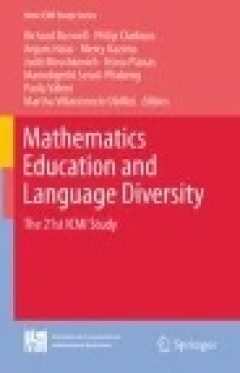
Mathematics Education and Language Diversity: The 21st ICMI Study
*THIS BOOK IS AVAILABLE AS OPEN ACCESS BOOK ON SPRINGERLINK* This book examines multiple facets of language diversity and mathematics education. It features renowned authors from around the world and explores the learning and teaching of mathematics in contexts that include multilingual classrooms, indigenous education, teacher education, blind and deaf learners, new media and tertiary educa…
- Edition
- -
- ISBN/ISSN
- 978-3-319-14511-2
- Collation
- -
- Series Title
- -
- Call Number
- -

Mathematics Education in a Context of Inequity, Poverty and Language Diversit…
This volume is dedicated to the career of Jill Adler and the role she has played in growing mathematics education research in South Africa, Africa and beyond. Her work epitomises what is referred to as the ‘engaged scholar’: i.e. doing rigorous and theoretically rich research at the cutting edge of international work in the field which at the same time contributes to critical areas of local…
- Edition
- -
- ISBN/ISSN
- 978-3-319-38824-3
- Collation
- -
- Series Title
- -
- Call Number
- -
 Computer Science, Information & General Works
Computer Science, Information & General Works  Philosophy & Psychology
Philosophy & Psychology  Religion
Religion  Social Sciences
Social Sciences  Language
Language  Pure Science
Pure Science  Applied Sciences
Applied Sciences  Art & Recreation
Art & Recreation  Literature
Literature  History & Geography
History & Geography